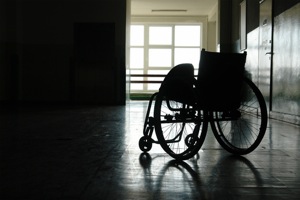Understaffing
 The Los Angeles nursing home and assisted living neglect lawyers at the Yeroushalmi Law have extensive experience with claims against skilled nursing facilities and assisted living facilities for understaffing. We have the necessary knowledge, experience, and resources to prove understaffing in your loved one’s facility. We understand that most injuries in nursing homes are preventable with sufficient and qualified staff.
The Los Angeles nursing home and assisted living neglect lawyers at the Yeroushalmi Law have extensive experience with claims against skilled nursing facilities and assisted living facilities for understaffing. We have the necessary knowledge, experience, and resources to prove understaffing in your loved one’s facility. We understand that most injuries in nursing homes are preventable with sufficient and qualified staff.
The Patients’ Bill of Rights, also referred to as Resident’s Rights or the Comprehensive Bill of Rights, require the following of every skilled nursing facility: “The facility shall employ an adequate number of qualified personnel to carry out all of the functions of the facility.” (See Health & Safety Code § 1599.1(a).) More importantly, under California law, nursing homes are required to provide a minimum of 3.2 nursing hours per patient per day. (Health & Safety Code §1276.5-1276.65.) This means, for example, that if on a particular day a facility is in custody of 100 residents, it must clock in at least 320 hours of care by direct caregivers, which include only RN’s, LVN’s, and CNA’s, and not maintenance, janitorial, or other non-caregiver staff.
Of course, 3.2 nursing hours per patient per day is just a minimum requirement. In most instances, based on the acuity needs of its residents, a nursing home must provide a much higher caregiver to patient ratio than just 3.2.
Unlike skilled nursing facilities, assisted living facilities do not provide skilled nursing care, and are not as heavily regulated as nursing homes. Assisted living facilities are not necessarily required to possess the minimum “3.2 nursing hours per patient per day” as do nursing homes. However, assisted living facilities are still governed by applicable state and federal regulations, and California law specifically mandates, among other requirements, that each assisted living facility provide the necessary staff, in numbers, qualifications, and competency, to “provide the services necessary to meet resident needs, and to “ensure their health, safety, comfort, and supervision” of the residents. (See Health and Safety Code §§ 1569.269(a)(6), 1569.618(c); see also 22 CCR § 87411.) Regardless of the applicable requirements, it is clear that an understaffed facility directly and negatively affects the quality of care that residents receive.
In a June 2002 report to the Senate Committees on Aging and Finance, the Government Accountability Office (“GAO”) determined that the quality of care in nursing homes is directly related to staffing. (See GAO, Nursing Homes: Quality of Care More Related to Staffing than Spending (Pub.No.GAO-02-431R, 2002)) “In the states we examined,” the report said, “nursing hours per resident day-especially nurses’ aide hours were related to quality-of-care deficiencies, with homes providing more nursing hours being less likely to have identified quality problems than homes providing fewer nursing hours.” Understaffing, in turn, leads to substandard care, which leads to injuries and abuse. It’s actually quite simple: the fewer hours clocked in by direct caregivers, the more likely preventable injuries, and sometimes death, can occur.
Adequate staffing also takes into account the quality of care that is being provided. Because it is cheaper for nursing home and assisted living operators to hire more assistants and less licensed employees, thus staff may sometimes be unqualified or inexperienced in providing the care that patients or residents require. In another attempt to save money, nursing homes and assisted living facilities may not provide resources that are necessary for quality care or may forgo the implementation of training programs that are beneficial to improving quality care.
The purpose of skilled nursing and assisted living facilities is to care for the elderly of our community. Therefore, its first objective should be to strive to improve quality of life for its patients and residents. Unfortunately, this often is not the case. Don’t allow facilities to continue putting profits over their patients and your loved ones. If you believe your loved one has suffered injuries in a nursing home or assisted living facility as a result of short staffing, he or she may be a victim of elder abuse and neglect and you may want to contact a Los Angeles elder abuse lawyer.
Our team of elder abuse attorneys in Los Angeles is dedicated to nursing home and assisted living neglect litigation and has achieved numerous favorable rewards on behalf of our clients. At Yeroushalmi Law, we are extremely passionate about what we do and take pride in providing our clients with comprehensive legal services. If you feel that your loved one’s nursing home or assisted living is failing to meet the standard of care that he or she deserves and requires by being understaffed, please contact us today for a free consultation.
 Los Angeles Nursing Home Abuse Lawyer Ben Yeroushalmi Home
Los Angeles Nursing Home Abuse Lawyer Ben Yeroushalmi Home